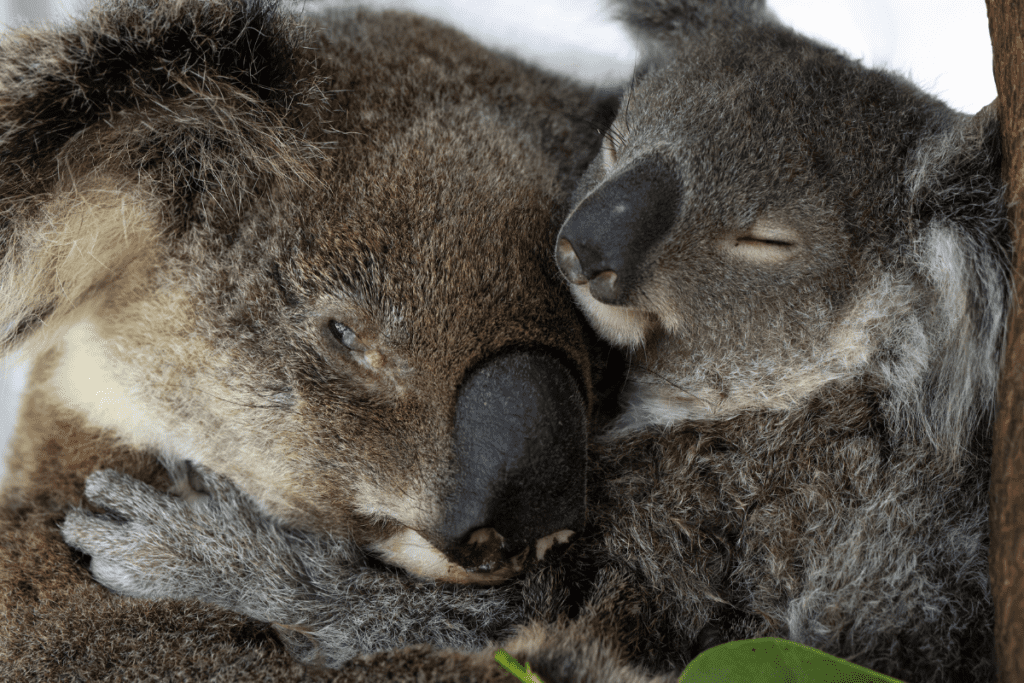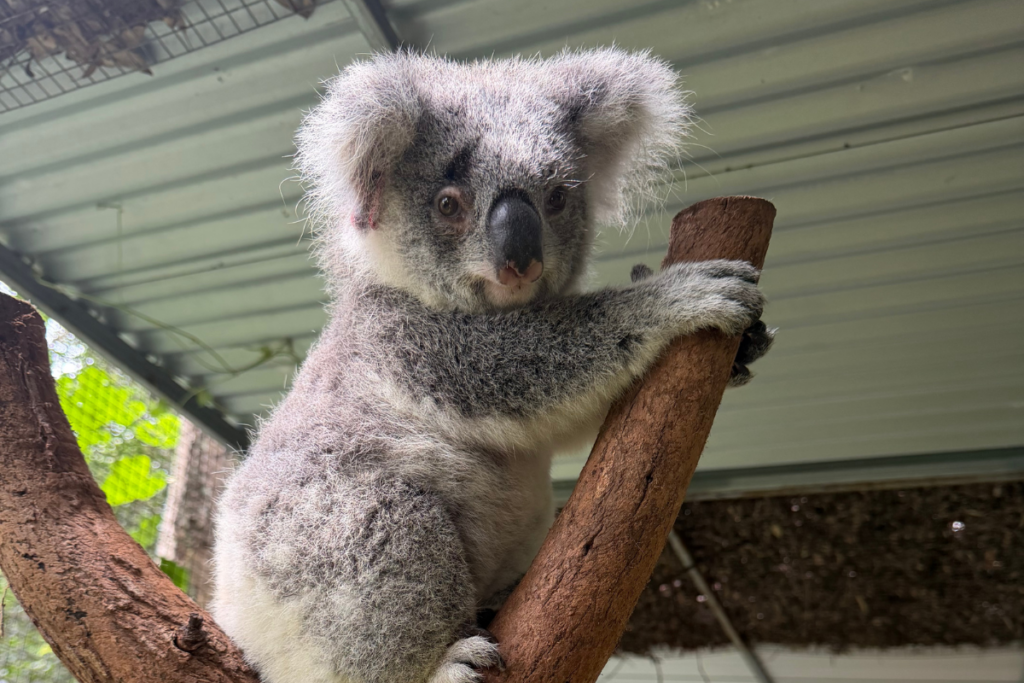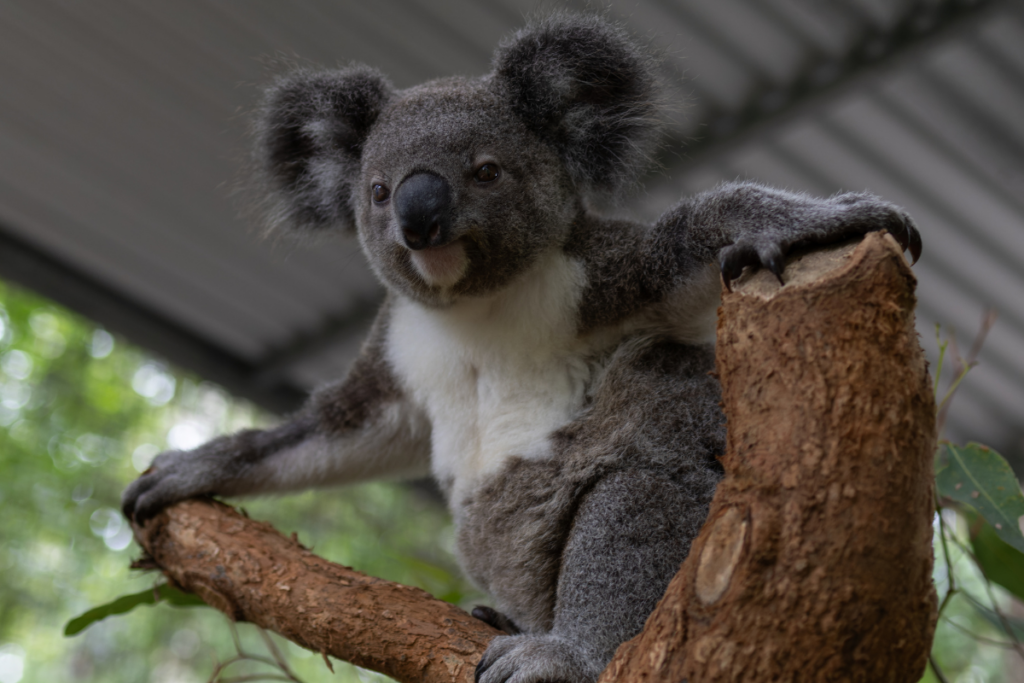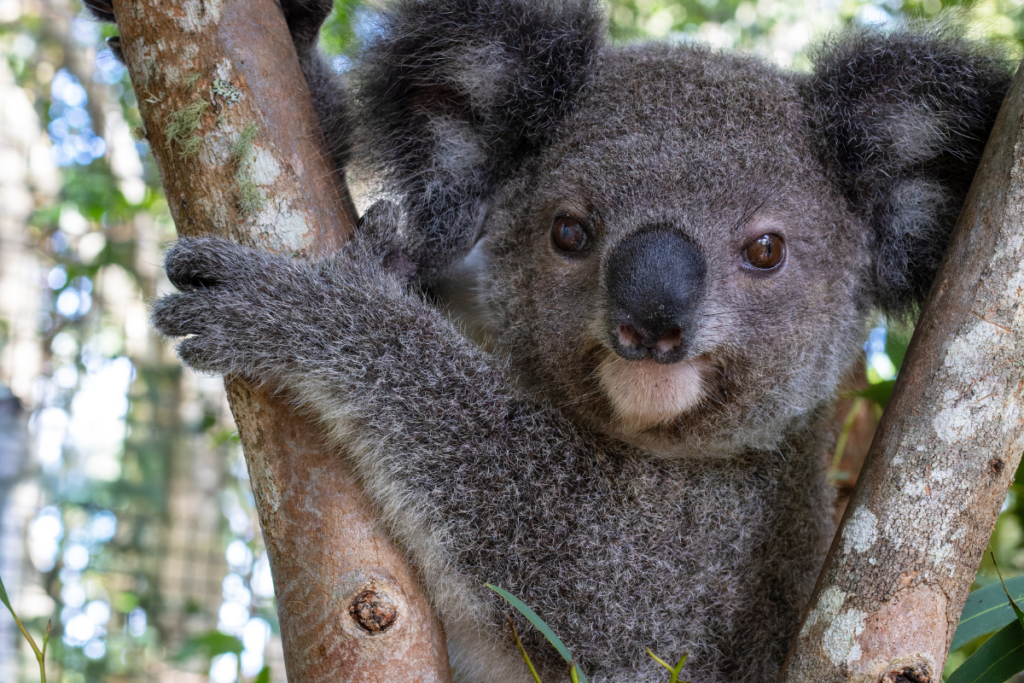It’s Mother’s Day in Australia on Sunday May 11th! It’s also Mother’s Day in New Zealand, Canada, the USA, Germany, Italy, India, Japan, South Africa, Brazil, Malaysia and Singapore whilst Mexico is on Saturday 10th May.
Mother’s Day is important because it is a special day to honour the special person who has given you life /or raised you – a person who has been a mother figure for you. The relationship we have with our mother is usually the first and on which all others are built.
Mother’s Day celebrates creation of life, unconditional love, nourishment, nurturing, protection and sacrifice. We also love the idea of ‘Mother Nature’ – she who gives life to everything and shelters and sustains us.
This Mother’s Day we celebrate:
- Mother Nature and all she gives us,
- Mothers who step up for those who need them,
- Strong women who have worked tirelessly for koalas and helped shaped Friends of the Koala over the past four decades, standing tall through challenges and bending with grace when it was overwhelmingly difficult and sad.
- Our mums, step-mums, grandmas and all mother figures and of course one of the best mums in the animal world … the koala!
We invite you to celebrate with us and maybe, if you can, adopt one of our beautiful koalas for your mum or yourself.
Are koalas good mothers?
We think so and the evidence certainly points to it. Did you know that young female koalas can give birth to a joey every year? Older koalas might have joeys a little less often – perhaps every two years. A female koala pregnancy lasts around thirty-five days, after which a tiny little jellybean of a joey, miraculously climbs all the way to her mum’s pouch, where she will spend the next five to seven months. Just like human babies, koala joeys are born vulnerable and would not survive without the warmth and food from their mums.
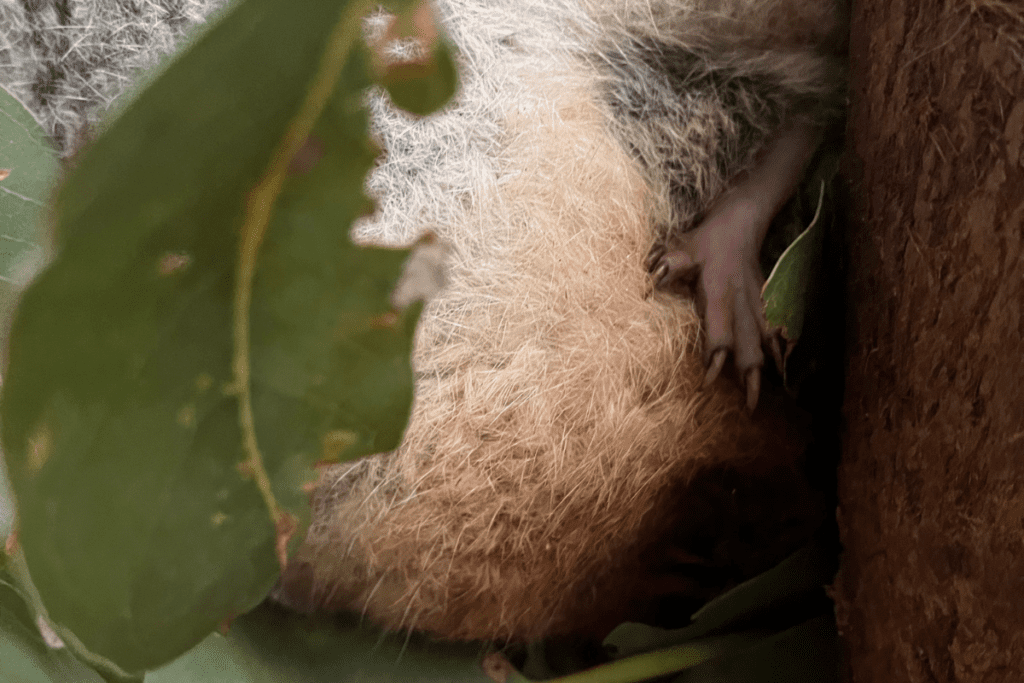
Once the joey is big enough, they will start to venture outside the pouch, eventually moving to their mums back where they spend roughly the next seven months. The joey has only had his mum’s milk to this point and in preparation for his transition to leaf he must consume what is called pap. Pap is a substance produced by the mother in addition to milk and prepares the joey’s microbiome to digest toxic eucalyptus leaves. The act of eating faeces is called coprophagia – even though strictly speaking it’s not poop – it is much more than that.
Fun fact – unlike other marsupials, koalas do not clean their pouch. Instead they have a self-cleaning system which is activated just before they give birth. They secrete droplets of anti-microbial liquid that cleans it out. Koala pouches are backwards facing so would be pretty difficult to clean themselves. Genius!
Did you know that lactating female koalas also consume more leaf compared to non-lactating females? We get that! It’s much more tiring to produce and feed another being – it must be the same for koalas. Interestingly, koala milk has a lower energy content compared to other mammals but also an extended lactation period which makes up for it. In fact, a female koala feeds her joey approximately 58% longer than the average marsupial!
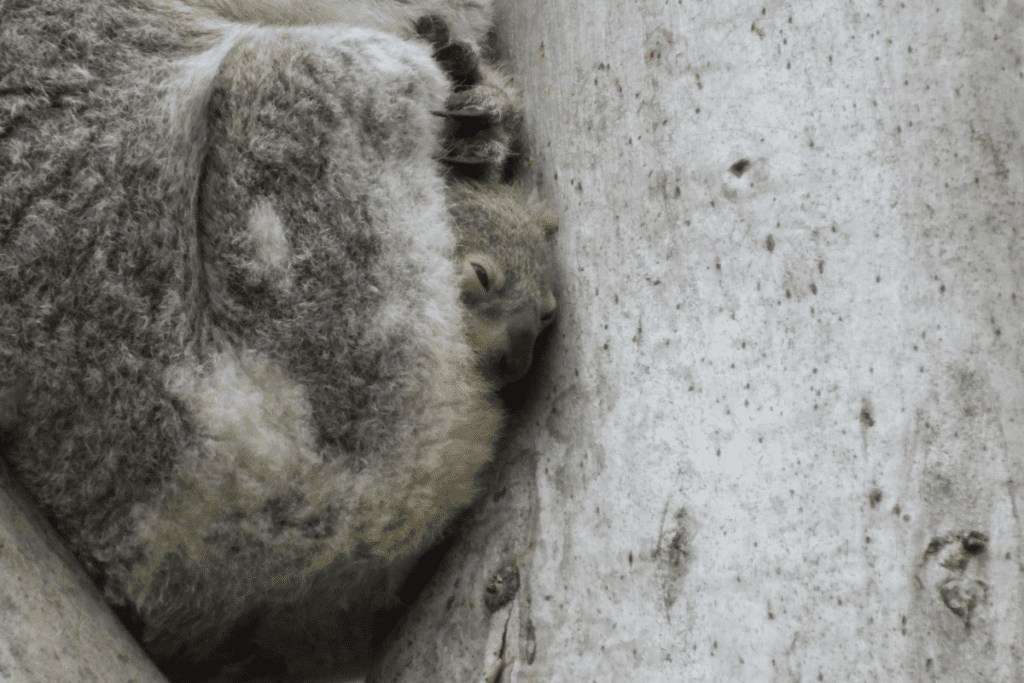
Why some might think female koalas are not good mothers
Once joeys are old enough, female koalas and their joeys just seem to know the right time for them to reach independence – although they’re not always on the same page at the same time – it’s usually around the twelve-month mark. The joey has grown rapidly, is heavier and more difficult to carry, mum has probably ceased to lactate. The joey is also venturing further away from mum and is capable – it becomes natural to separate, but it can look aggressive on the mother’s part, the idea is that she is telling the joey – now, it’s time. We are always being told how important boundaries are right?! Koala mums have worked it out too!
These joeys can stay in their mother’s home range for (any length of time if the joey is a female) but if the joey is a male koala, they will need to find their own home range from around two years old. This as we know is a dangerous time for them as they navigate fragmented habitat including roads and backyards and where they might encounter cars, dogs and more dominant male koalas who can inflict injuries. Read more in the links below.
Whilst a joey is in his mum’s pouch or on her back, he is learning from her – just like human babies. They’re learning about the food they eat, the trees to choose, how to climb and jump, they’re using their amazing sense of smell and hearing to learn about territories and possible threats and if the joey is a female they’re probably also learning about how to mother.
Koala mums are generally docile and show no aggression towards their joey but stress and agitation during breeding season or a perceived threat to her territory could look like aggression.
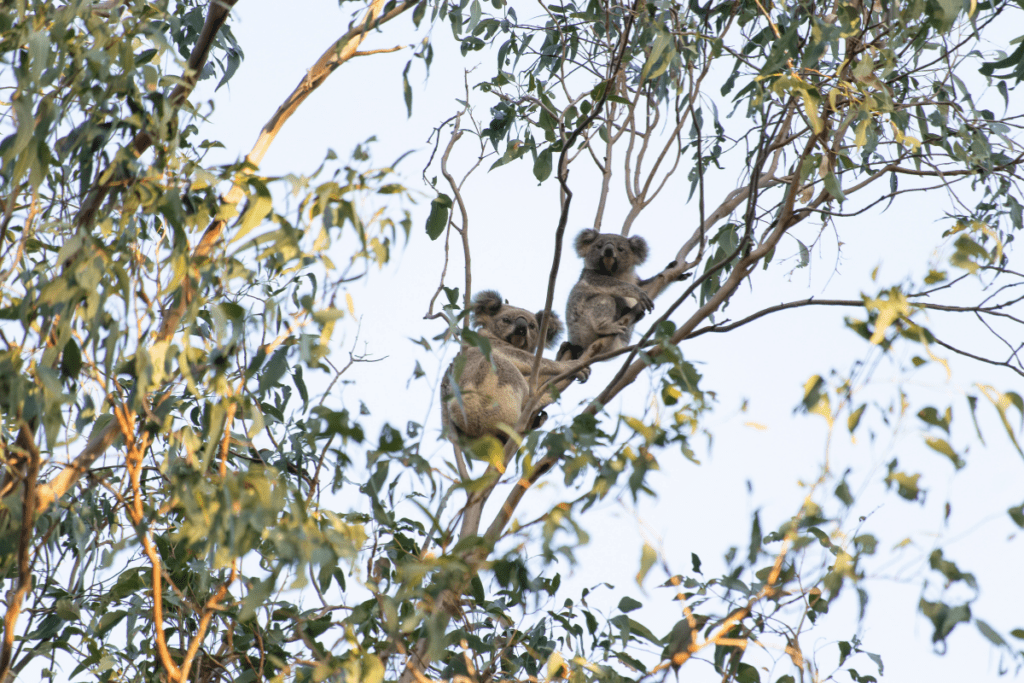
Interesting fact about koala mums
A super interesting fact we love about koalas which further shows what amazing mums they are is that, although female koalas usually have one joey per year, they have been observed to act as surrogate mothers, adopting rejected, lost or orphaned joeys. It’s not super common but it has happened and would be pretty tricky too if they have their own back young joey – carrying all the extra weight. They also seem to provide the same level of care to the adopted joey as they do to their own.
Let’s not forget our own super surrogate mum Charlotte who has shown her own natural mothering abilities on a number occasions even though she has never had any joeys of her own. Charlotte has helped little Webster settle in and instantly bonded with him, she also helped Keogh and many other joeys, more recently she helped socialise little Hobi and get him used to other koalas before he was released into the wild.
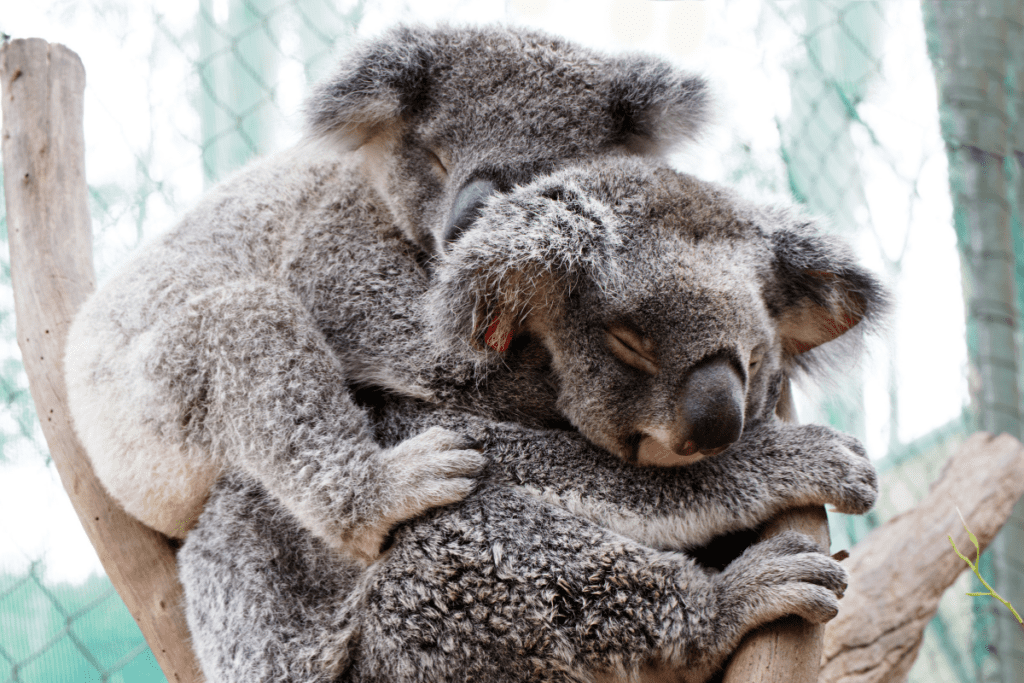
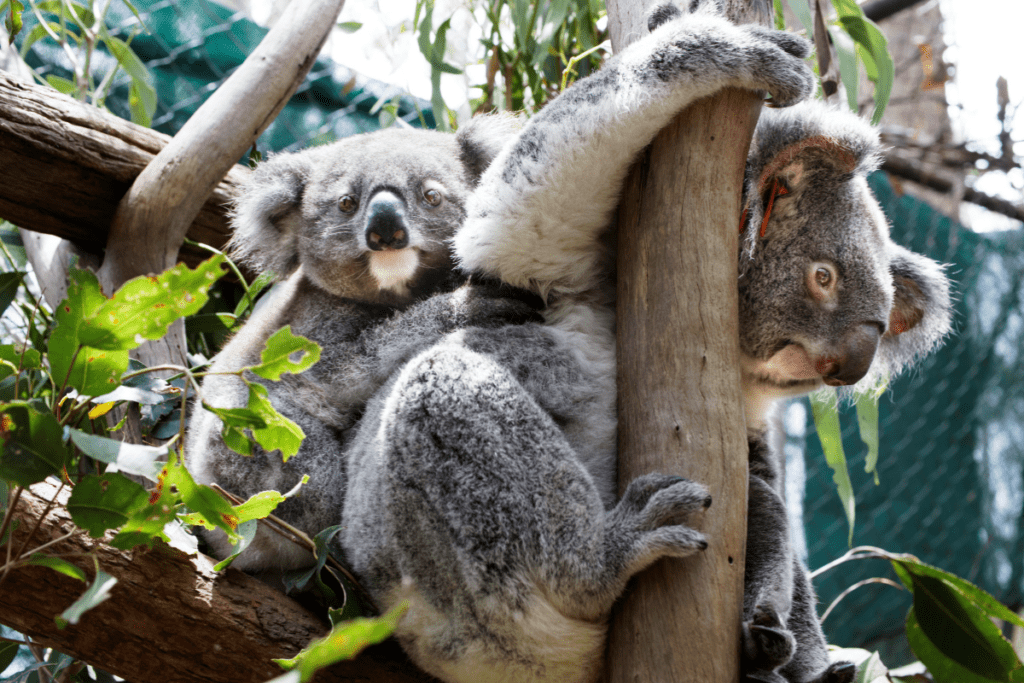
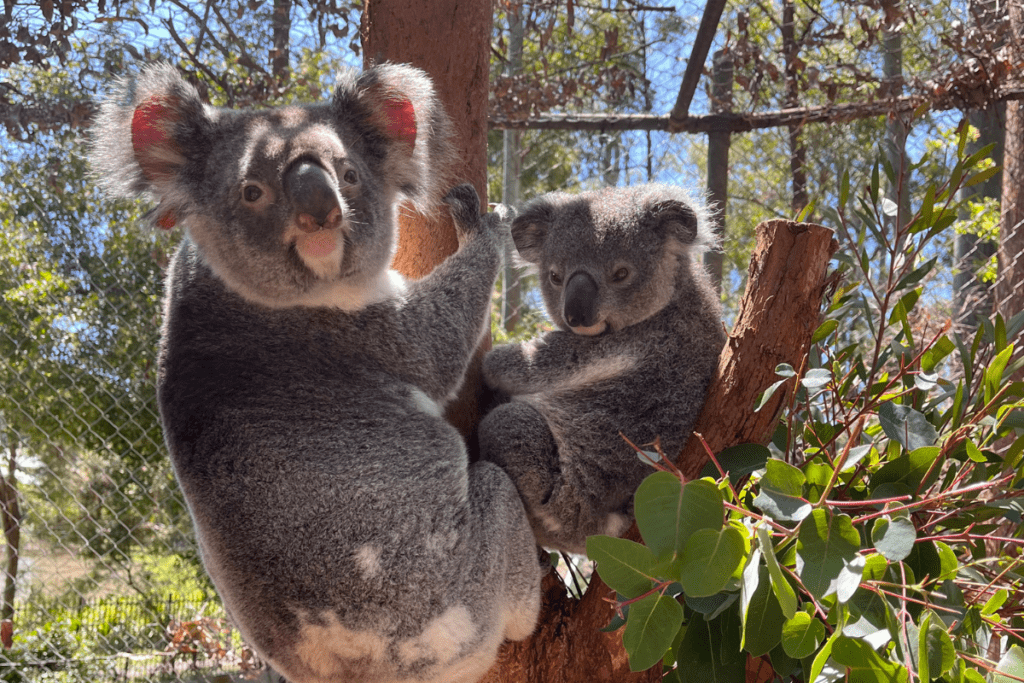
Koalas are obviously doing something right as in around 2021 the term ‘koala parenting‘ was coined as a newer term for secure attachment parenting (in humans) – which reportedly focuses on nurturing an emotional and physical bond between mother and baby – perhaps those who coined the phrases didn’t see any footage of koala mums deciding their joey was now too big for back carries!
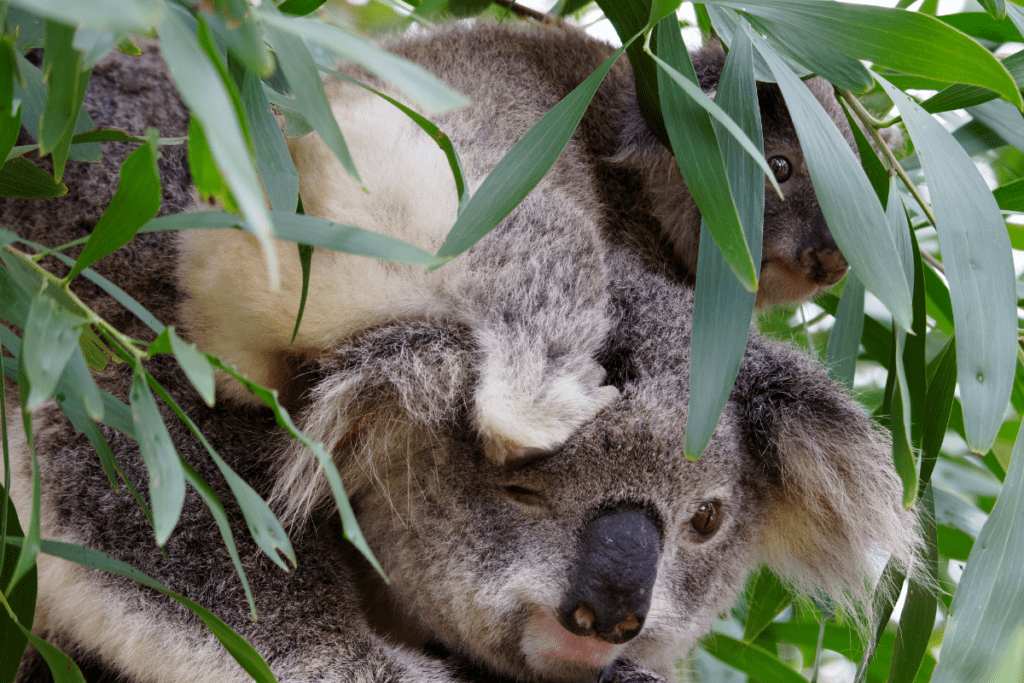
We do hope you enjoyed reading all about koala mums and we hope that you can celebrate Mother’s Day with us and adopt a koala for yourself, your mum or the amazing mother figure in your life! Tell us what you think – do you think koalas are amazing mums?
To read more on the challenges faced by dispersing males please visit:
To find more ways to support us please visit – support us.

